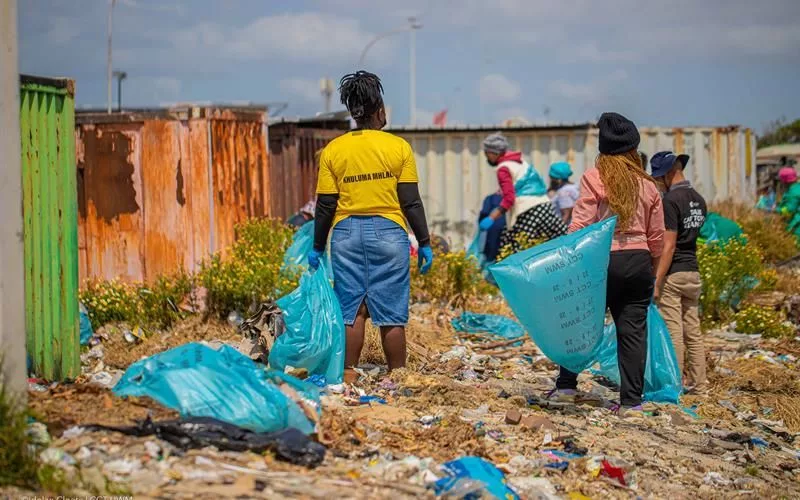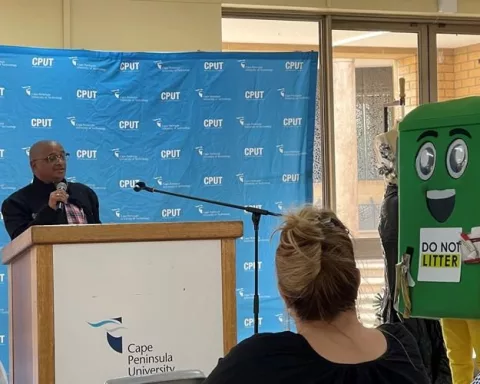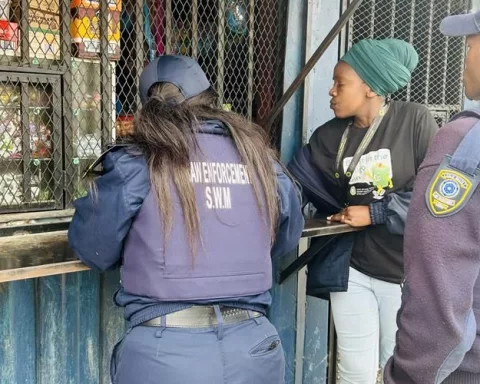Cape Town is fighting against illegal dumping by promoting citizen-led community clean-up campaigns. The Urban Waste Management Directorate supplies refuse bags and helps dispose of the waste, transforming dumping grounds into areas of communal pride. By uniting and organizing clean-up campaigns, residents can deter offenders and reclaim their neighborhoods, creating a cleaner, greener Cape Town for future generations.
How is Cape Town fighting against illegal dumping?
Cape Town’s Urban Waste Management Directorate is promoting citizen-initiated community clean-ups to combat the ongoing issue of illegal dumping. The directorate offers support by supplying high-quality refuse bags and assisting in disposing of the bagged waste after the clean-up. These efforts not only promote cleanliness but also aim to transform garbage-filled spaces into areas of communal pride. By uniting and organizing clean-up campaigns, residents can help deter offenders and reclaim their neighborhoods.
In the vibrant metropolis of Cape Town, the relentless challenge of unlawful waste disposal persistently manifests itself, tarnishing the city’s image. Yet, the Urban Waste Management Directorate of Cape Town is pushing back, reaching out to residents to unite and organize community-led clean-up campaigns. This urgent appeal is not merely a request; it presents an opportunity for citizens to regain their surroundings, converting dumping grounds into areas of communal pride.
The Ongoing Challenge of Illegal Dumping
Cape Town’s neighborhoods have been haunted persistently by the menace of illegal dumping. The areas cleared of waste often quickly refill, as if their existence is an accepted characteristic of the urban environment. This creates an ongoing cycle, a perpetual struggle with no clear victor; a site cleared of waste today could be a dumping ground again tomorrow.
However, the City of Cape Town’s Directorate refuses to concede. It understands that the city’s inhabitants are indispensable allies in this unremitting fight. By promoting citizen-initiated community clean-ups, the directorate hopes to shift the balance, transforming garbage strewn spaces into community gardens, symbols of neighborhood pride.
Alderman Grant Twigg, the head of the Mayoral Committee for Urban Waste Management, succinctly encapsulates the spirit of this initiative: “Clean-ups organized by communities are effective in discouraging dumping. When offenders see that communities are making efforts at waste hotspots, many are discouraged from continuing their actions for fear of retaliation.” This perspective extends beyond mere physical clean-up; it is reflective of the impact of community action and vigilance.
Supporting Community-Led Initiatives
In solidarity with these community-led efforts, the Directorate has committed to supplying high-quality refuse bags and offers assistance in disposing of the bagged waste after the clean-up. This support mechanism personifies the old saying, ‘United we stand, divided we fall’. The city is conveying a straightforward message: you clean, we’ll help you dispose, and collectively, we will reclaim our neighborhoods.
Combating illegal dumping is not merely a cleanliness issue—it’s about regaining public spaces. Envision transforming a previously litter-filled area into a community garden, a playground, or a venue for local artisans to exhibit their work. Such transformation can serve as a deterrent to future illegal dumping. While resources for such beautification efforts might not always be readily available, the Directorate encourages residents to discuss these possibilities with their local sub-council, keeping the vision for future collaborations and opportunities alive.
A Vision for a Cleaner, Greener Cape Town
As Alderman Twigg put it: “Together, we can make a difference in preserving the beauty and cleanliness of our communities. Let’s join forces to fight against illegal dumping and create a cleaner, greener Cape Town for future generations.”
This call-to-action is not merely a rallying cry against illegal dumping; it is a vision for a cleaner and greener Cape Town. It’s an affirmation of the power of collective action and the transformative potential it possesses. It urges residents to assume responsibility for their neighborhoods, to confront the urban menace of illegal dumping, and convert it into a symbol of community pride and resilience.
Ultimately, Cape Town’s community clean-up initiative should serve as an inspirational beacon, illuminating the power and potential of resident-led efforts in urban waste management. May it motivate other cities to emulate this model, fostering cleaner, greener urban landscapes worldwide.
What is Cape Town doing to combat illegal dumping?
Cape Town’s Urban Waste Management Directorate is promoting citizen-initiated community clean-ups to combat the ongoing issue of illegal dumping. The directorate offers support by supplying high-quality refuse bags and assisting in disposing of the bagged waste after the clean-up.
How can residents get involved in the clean-up campaigns?
Residents can unite and organize clean-up campaigns in their neighborhoods. They can also discuss possibilities for beautification efforts with their local sub-council.
What is the goal of the clean-up campaigns?
The goal of the clean-up campaigns is to deter offenders and reclaim neighborhoods, creating a cleaner, greener Cape Town for future generations.
Why is community action important in combating illegal dumping?
Community action is important because it promotes cleanliness and helps deter offenders. When offenders see that communities are making efforts at waste hotspots, many are discouraged from continuing their actions for fear of retaliation.
How is the Urban Waste Management Directorate supporting the clean-up campaigns?
The Urban Waste Management Directorate is supplying high-quality refuse bags and offers assistance in disposing of the bagged waste after the clean-up.
What is the vision for a cleaner, greener Cape Town?
The vision for a cleaner, greener Cape Town is to preserve the beauty and cleanliness of communities by uniting forces to fight against illegal dumping. It is an affirmation of the power of collective action and the transformative potential it possesses.












